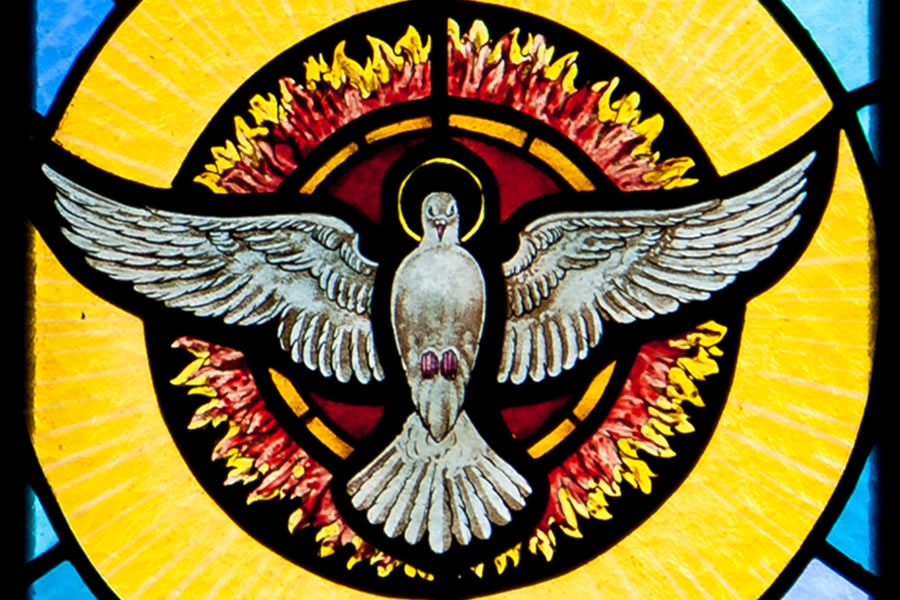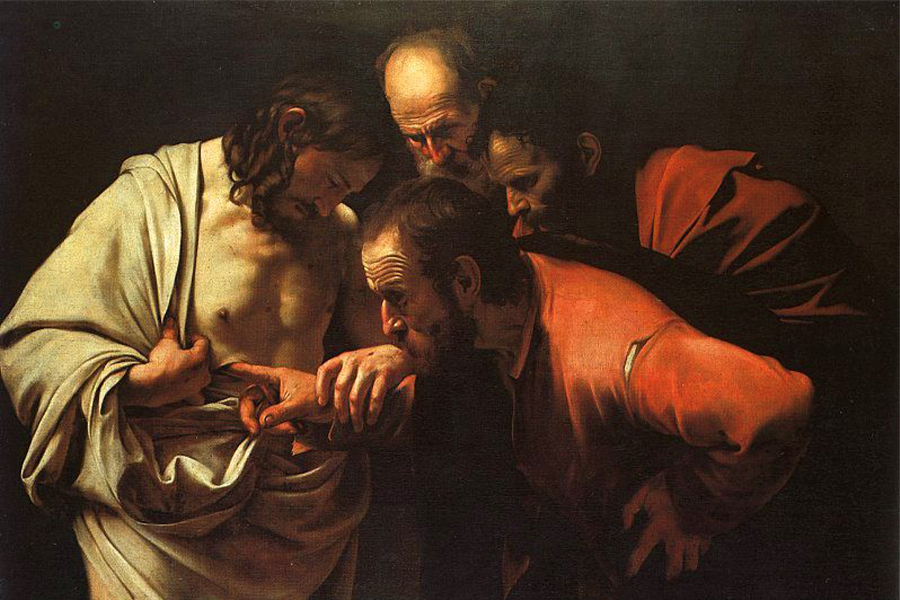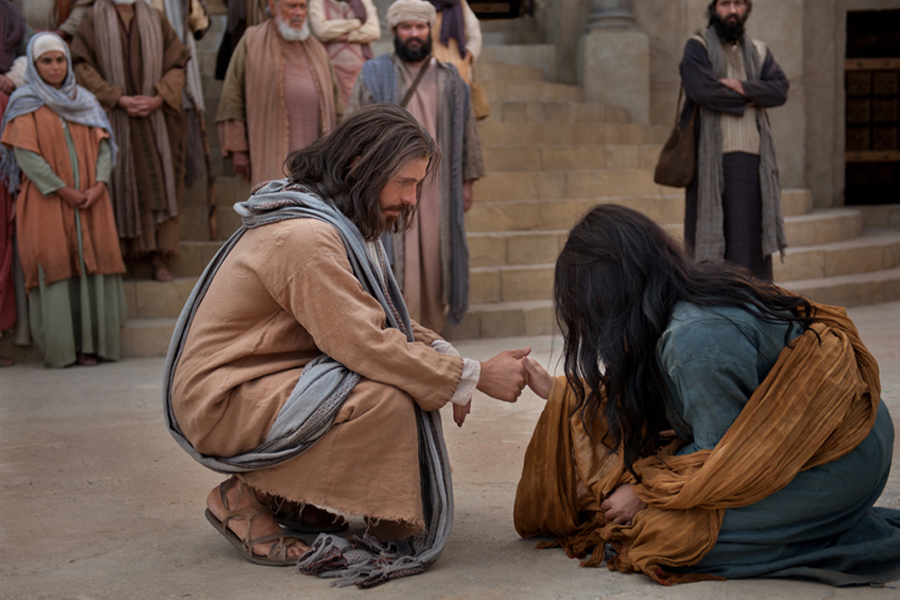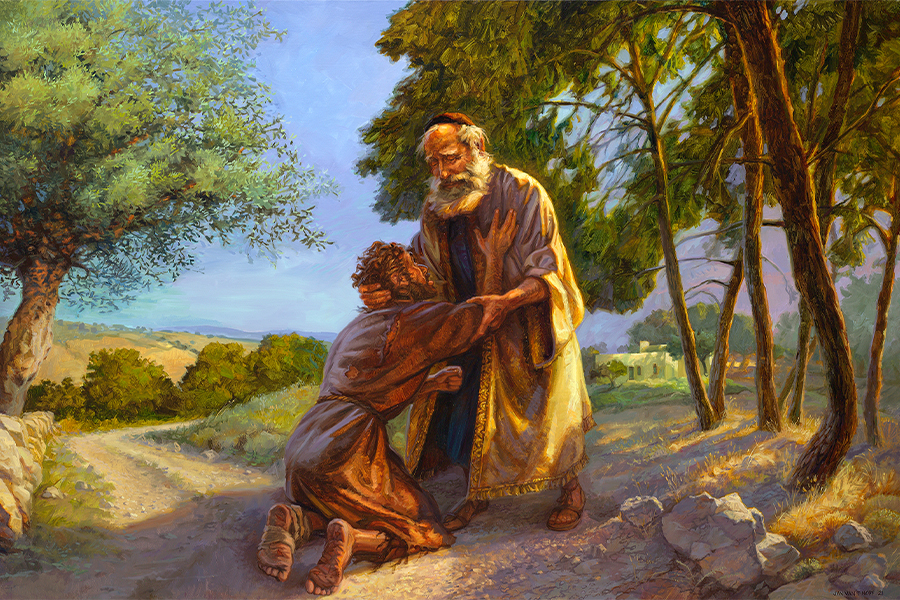St. Francis of Assisi Weekly Reflections

Allow the Holy Spirit to Guide You
05-29-2022Weekly ReflectionWe Celebrate Worship Resource, Vol. 47, No. 2"Go!...But wait!" Those are not Jesus' actual words, but according to what Luke reported in his Gospel, and in Acts of the Apostles, it’s a reasonable paraphrase. He commanded his disciples to preach the kingdom of god and repentance for the forgiveness of sins to all the nations, to the ends of the earth. But then he told them to wait for the Holy Spirit, who would give them “power from on high” (Luke 24:49). The disciples, Peter in particular, had a history of acting impetuously or misunderstanding Jesus’ words. The Holy Spirit would give them guidance and understanding, enabling them to discern God’s will and God’s work in the world. The Holy Spirit would also give them the courage they needed to be the Lord’s witnesses, even in the face of hostility or indifference. Jesus knew it would not be easy. The religious and political authorities who persecuted Jesus would not welcome his followers bearing witness to his resurrection. We are now those witnesses. With help from the Holy Spirit, we bear witness to the world, even when it is not easy, even when we too face opposition for speaking out for justice, for truth, for our conscience.
How can the Holy Spirit guide you and fortify you for bearing witness?
Deja que el Espíritu Santo te Guie
¡Ve!...¡ Pero espera!" Esas no son las palabras de Jesús, pero de acuerdo con lo que Lucas informó en su Evangelio y en los Hechos de los Apóstoles, es una paráfrasis razonable. Mandó a sus discípulos a predicar el reino de Dios y el arrepentimiento para el perdón de los pecados a todas las naciones, hasta los confines de la tierra. Pero luego les dijo que esperaran al Espíritu Santo, quien les daría “fuerza de lo alto” (Lucas 24:49). Los discípulos, Pedro en particular, tenían un historial de actuar impetuosamente o malinterpretar las palabras de Jesús. El Espíritu Santo les daría guía y entendimiento, capacitándolos para discernir la voluntad de Dios y la obra de Dios en el mundo. El Espíritu Santo también les daría el valor que necesitaban para ser testigos del Señor, incluso frente a la hostilidad o la indiferencia. Jesús sabía que no sería fácil. Las autoridades religiosas y políticas que persiguieron a Jesús no aceptaron a sus seguidores dando testimonio de su resurrección. Ahora somos esos testigos. Con la ayuda del Espíritu Santo, damos testimonio al mundo, incluso cuando no es fácil, incluso cuando también nosotros enfrentamos oposición por hablar por la justicia, por nuestra conciencia.
¿Cómo puede el Espíritu Santo guiarte y fortalecerte para dar testimonio?
The Gift of Wisdom
05-29-2022Question of the WeekReading I: Acts 1:1-11 - The Ascension of Jesus
Reading II: Ephesians 1:17-23 - A Spirit of wisdom
Gospel: Luke 24:46-53 - The Ascension
Key Passage:
That the God of our Lord Jesus Christ, the Father of glory, may give you a spirit of wisdom and revelation resulting in knowledge of him. (Ephesians 1:17)
Adults: Who in your family has the gift of wisdom? How does he or she use this gift?
Kids: Who is the wisest person you know? What has he or she taught you?
El Don de la Sabiduria
Lectura I: Hechos 1:1-11 - La Ascensión de Jesús
Lectura II: Efesios 1:17-23 - Espíritu de sabiduría
Evangelio: Lucas 24:46-53 - La Ascensión
Pasaje Clave:
Padre de gloria, que les conceda espíritu de sabiduría y de reflexión para conocerlo. (Efesios 1:17)
Adultos: ¿Quién en tu familia tiene el don de la sabiduría? ¿Cómo usa él o ella este don?
Niños: ¿Quién es la persona más sabia que conoces? ¿Qué te ha enseñado él o ella?
Keeping Jesus' Word
05-22-2022Question of the WeekReading I: Acts 15:1-2, 22-29 - Letter of the apostles to the gentiles
Reading II: Revelation 21:10-14, 22-23 -The new Jerusalem
Gospel: John 14:23-29 - Last discourse; faithfulness to God's word
Key Passage:
will keep my word, and my Father will love them, and we will come to them and make our home with them.” (John 14:23)
Adults: What difference has it made in your life when you made a decision in accord with Jesus' teachings?
Kids: When will you have to make a decision this week? What will help you make a good decision?
Guardar la Palabra de Jesus
Lectura I: Hechos 15:1-2, 22-29 - Carta de los apóstoles a los gentiles
Lectura II: Apocalipsis 21:10-14, 22-23 - La nueva Jerusalén
Evangelio: Juan 14:23-29 - El último discurso; fidelidad a la palabra de Dios
Pasaje Clave
palabra guardará; y mi Padre le amará, y vendremos a él, y haremos morada con él.”
(Juan 14:23)
Adultos: ¿Qué diferencia ha hecho en tu vida cuando tomaste una decisión de acuerdo con las enseñanzas de Jesús?
Niños: ¿Cuándo tendrás que tomar una decisión esta semana? ¿Qué te ayudará a tomar una buena decisión?

Holy Spirit Guide Us to Peace
05-20-2022Weekly ReflectionWe Celebrate Worship Resource, Vol. 47, No. 2We will... make our dwelling with him (or her)” (John 14:23), Jesus promises his disciples in his conversation with them at he Last Supper. He tells them that the Holy Spirit will come after he leaves. The Holy Spirit dwells with us, guides us, counsels us, advocates for us, and gives us peace. The leaders of the early church relied on the Holy Spirit when facing issues Jesus had not explicitly addressed. For instance, Paul and Barnabas asked them to decided what Jewish practices were necessary for Gentile Christians. A requirement of circumcision would have been a burden to men with no tradition of the practice. More significantly, it relegated women to second-class status. Guided by the Holy Spirit, the decision they made brought peace to the newly baptized Gentiles. Two thousand years later, the Holy Spirit still dwells with us and guides us. May we allow the Holy Spirit to guide us to peace, the peace that Jesus gave to his disciples with some of the last words before he died and in his first words to them after he rose.
How can you bring the peace of the Holy Spirit to your family, your community, and the world?
Espíritu Santo Guíanos hacia la Paz
"Haremos... haremos nuestra morada con él (o ella)” (Juan 14:23), Jesús promete a sus discípulos en su conversación con ellos en la Última Cena. Él les dice que el Espíritu Santo vendrá después de que él se vaya. El Espíritu Santo mora con nosotros, nos guía, nos aconseja, nos aboga y nos da la paz. Los líderes de la iglesia primitiva confiaban en el Espíritu Santo cuando enfrentaban problemas que Jesús no había abordado explícitamente. Por ejemplo, Pablo y Bernabé les pidieron que decidieran qué prácticas judías eran necesarias para los cristianos gentiles. Un requisito de la circuncisión habría sido una carga para los hombres sin tradición de la práctica. Más significativamente, relegó a las mujeres a un estatus de segunda clase. Guiados por el Espíritu Santo, la decisión que tomaron trajo paz a los gentiles recién bautizados. Dos mil años después, el Espíritu Santo todavía mora con nosotros y nos guía. Permitamos que el Espíritu Santo nos guíe hacia la paz, la paz que Jesús les dio a sus discípulos con algunas de sus últimas palabras antes de morir y en sus primeras palabras después de resucitar.
¿Cómo puedes traer la paz del Espíritu Santo a tu familia, tu comunidad y el mundo?

Love One Another
05-15-2022Weekly ReflectionWe Celebrate Worship Resource, Vol. 47, No. 2"As I have loved you, so you also should love one another” (John 13:34). At first hearing, it sounds wonderful. Love, afte all, is a beautiful emotion. But love is more than warm affection for someone else; it is an unselfish concern for that other person. Loving one another is especially challenging considering the context of this conversation. Note the first five words of this passage: “When Judas had left them” (13:31). This scene takes place at the Last Supper, right after Judas has been sent away: “What you are going to do, do quickly” (13:27). Jesus has shown his love for others during his entire ministry: healing the sick, driving out demons, forgiving sinners, and caring for his disciples. But now in giving his life for humankind, he reveals the true depth of his love. It is this completely unselfish act, following the will of his Father and forgiving the sins of all humanity, that also provides us a model of loving one another. It is in loving one another, unselfishly and unconditionally, that we reveal the love of God for our neighbor.
How can you bring God’s love to someone who needs it?
Amense Unos a los Otros
"Que se los unos a los otros, comoyo los he amado” (Juan 13:34). A primera vista, suena maravilloso. El amor, después de todo, es una emoción hermosa. Pero el amor es más que un cálido afecto por otra persona; es una preocupación desinteresada por esa otra persona. Amarse unos a otros es especialmente desafiante considerando el contexto de esta conversación. Note las primeras cinco palabras de este pasaje: “Cuando Judas salió del cenáculo” (13:31). Esta escena tiene lugar en la Última Cena, justo después de que Judas ha sido despedido: “Lo que vas a hacer, hazlo más pronto” (13:27). Jesús ha mostrado su amor por los demás durante todo su ministerio: sanando a los enfermos, expulsando demonios, perdonando a los pecadores y cuidando de sus discípulos. Pero ahora, al dar su vida por la humanidad, revela la verdadera profundidad de su amor. Es este acto completamente desinteresado, siguiendo la voluntad de su Padre y perdonando los pecados de toda la humanidad, lo que también nos proporciona un modelo de amor mutuo. Es amándonos unos a otros, desinteresada e incondicionalmente, que revelamos el amor de Dios por nuestro prójimo.
¿Cómo puedes llevar el amor de Dios a alguien que lo necesita?

Lays Down His Life for His Sheep
05-06-2022Weekly ReflectionWe Celebrate Worship Resource, Vol. 47, No. 2"Feed my lambs," Jesus told Peter in last Sunday’s Gospel (John 21:15). When Peter heard this he may have recalled the Gospel we hear today when Jesus described a good shepherd: “My sheep hear my voice, I know them, and they follow me” (John 10:27). Sheep recognize and respond to their shepherd’s voice—important in the ancient Near East when all the village’s sheep were kept in a common pen at night—and good shepherds have a voice that guides and comforts their own. “Tend my sheep,” Jesus later instructed Peter (21:16). Here he said, “I give them eternal life, and they shall never perish” (10:28). The disciples must have realized that he was speaking of them. Good shepherds care for their sheep so that they have healthy, happy lives, but the Good Shepherd ensures that those healthy, happy lives will never end. “Feed my sheep,” Jesus commanded Peter (21:17). Perhaps he remembered Jesus saying, “No one can take them out of my hand,” assuring each member of the flock of his lasting protection (10:28). When Jesus commissioned Peter to be a good shepherd, Peter could think back to this day, when Jesus described that role.
How has the Good Shepherd helped you feel loved, secure, and comforted?
Da Su Vida por Las Ovejas
"Apacieta mis corderos", le dijo Jesús a Pedro en el Evangelio del domingo pasado (Juan 21:15). Cuando Pedro escuchó esto, pudo haber recordado el Evangelio que escuchamos hoy cuando Jesús describió a un buen pastor: “Mis ovejas oyen mi voz, yo las conozco y me siguen” (Juan 10:27). Las ovejas reconocen y responden a la voz de su pastor— importante en el antiguo Cercano Oriente cuando todas las ovejas del pueblo se mantenían en un corral común por la noche—y los buenos pastores tienen una voz que guía yconsuela a los suyos. “Pastorea mis ovejas”, instruyó Jesús más tarde a Pedro (21:16). Aquí dijo: “Yo les doy vida eterna, y no perecerán jamás” (10:28). Los discípulos deben haberse dado cuenta de que estaba hablando de ellos. Los buenos pastores cuidan de sus ovejas para que tengan una vida sana y feliz, pero el Buen Pastor se asegura de que esa vida sana y feliz nunca termine. “Apacienta mis ovejas”, ordenó Jesús a Pedro (21:17). Tal vez recordó a Jesús diciendo: “Nadie me las puede quitar de la mano”, asegurando a cada miembro del rebaño su protección duradera (10:28). Cuando Jesús comisionó a Pedro para que fuera un buen pastor, Pedro podía recordar este día, cuando Jesús describió ese papel.
¿Cómo te ha ayudado el Buen Pastor a sentirte amado, seguro y consolado?

Fisher of Believers
05-01-2022Weekly ReflectionWe Celebrate Worship Resource, Vol. 47, No. 2"I am going fishing," Peter tells the other disciples (John 21:3). Of course he is. It’s his trade, after all. His home is the sea. Especially in the morning he wanted to be out on the water, far from any rooster, whose crowing at sunrise would still bring him to tears. He could not stand the guilt pressing down upon him at the beginning of every day. But Easter wasn’t just the start of a new day for Peter and the disciples. It was the start of an entire new life. In the first reading we hear how successful he has become at teaching and preaching the gospel. How did he get from the shame of having denied his Lord to leading the apostles to teach in his name? This passage gives us a clue. Three times he had denied the Lord. Now three times he confesses his love for him. No matter which words are used for love or care or sheep, Peter commits himself to be the shepherd in Jesus’ place. Forgiven and commissioned, now he truly will fish for believers.
How would you answer Jesus’ question to Peter? How can you follow him and tend his sheep?
Pescador de Creyentes
"Voy a pescar", otros discípulos (Juan 21:3). Claro que lo es. Es su oficio, después de todo. Su hogar es el mar. Especialmente en la mañana que quería estar en el agua, lejos de cualquier gallo, cuyo canto al amanecer todavía lo llevaría a las lágrimas. No podía soportar la culpa presionando sobre él al comienzo de todos los días. Pero Pascua no fue solo el comienzo de un nuevo día para Pedro y los discípulos. Fue el comienzo de una nueva vida entera. En la primera lectura, escuchamos lo exitoso que se ha convertido en enseñar y predicar el Evangelio. ¿Cómo llegó de la vergüenza de haber negado a su Señor a dirigir a los apóstoles a enseñar en su nombre? Este pasaje nos da una pista. Tres veces le había negado al Señor. Ahora tres veces confiesa su amor por él. No importa qué palabras se usen para el amor o el cuidado o las ovejas, Pedro se compromete a ser el pastor en el lugar de Jesús. Perdonado y comisionado, ahora realmente pescará a los creyentes.
¿Cómo responderías a la pregunta de Jesús a Pedro? ¿Cómo puedes seguirlo y cuidar sus ovejas?

Doubt No More!
04-24-2022Weekly ReflectionWe Celebrate Worship Resource, Vol. 47, No. 2Defiant Thomas. Doubtung, to be sure, but also defiant in his refusal to believe. Just imagine ten close friends all telling you the same story. But you don’t believe it. You insist on seeing for yourself. Certainly this was an incredible phenomenon—someone returning from the dead—but your closest friends all insist they saw him in the flesh. Is that not enough? Not for Thomas. He insists that he needs to touch Jesus’ wounds to convince himself that he’s not just seeing things. So he shows up the following week, skeptical, but curious. When Jesus returns, just seeing him and hearing his voice brings Thomas to confess Jesus’ presence and divinity in the boldest possible terms: “My Lord and my God!” (John 20:28). Defiant Thomas defiant no longer. He cannot deny the truth standing in front of him. We all have a bit of Thomas in us. Skeptical, even in the face of eyewitness testimony, perhaps even defiant in our disbelief. But just as for Thomas, our doubts can be overcome. But we have to be willing to look again.
Can you recall a time when you changed your mind about something important?
¡No Dudes Más!
Thomás desafiante. Dudoso, pero también desafiante en su negativa a creer. Imagínese diez amigos cercanos que le cuentan la misma historia. Pero no le crees. Insistes en verlo por ti mismo. Ciertamente, este fue un fenómeno increíble, alguien que regresa de entre los muertos, pero todos tus amigos más cercanos insisten en que lo vieron en persona. ¿No es eso suficiente? No para Tomás. Insiste en que necesita tocar las heridas de Jesús para convencerse de que no solo está viendo cosas. Así que aparece la semana siguiente, escéptico, pero curioso. Cuando Jesús regresa, solo verlo y escuchar su voz hace que Tomás confiese la presencia y la divinidad de Jesús en los términos más audaces posibles: “¡Señor mío y Dios mío!” (Juan 20:28). Desafiante Tomás ya no desafiante. No puede negar la verdad que está frente a él. Todos tenemos un poco de Tomás en nosotros. Escépticos, incluso ante el testimonio de testigos oculares, tal vez incluso desafiantes en nuestra incredulidad. Pero al igual que con Tomás, nuestras dudas pueden ser superadas. Pero tenemos que estar dispuestos a mirar de nuevo.
¿Puedes recordar un momento en que cambiaste de opinión sobre algo importante?
Farewell Deacon Jim/ Hasta Pronto Diácono Jim
04-22-2022NewsDcn. Jim ShelleyDearest St. Francis Parish Family,
Looking back on my life, as I prepare for new assignments, challenges, and journeys,
I cannot help but be thankful for so many things, one of the greatest of these is YOU,
the community of St. Francis!

Redemption at Your Fingertips
04-17-2022Weekly ReflectionWe Celebrate Worship Resource, Vol. 47, No. 2"This is the day the Lord had made," we sing in today’s responsorial psalm (Psalm 118:21), and indeed we are filled with Easter joy, for the Lord has defeated death and saved us from the power of sin. Out of love and mercy, Jesus accepted the cross and suffered in an absolutely terrible human way: betrayed, abandoned, tortured, and put to death. But death is not the end. The joy of Easter is the joy of the Beloved Disciple sprinting to the empty tomb, seeing the discarded burial cloths, and believing. New life has been found on the other side of the cross. So too is it for us. The crosses we carry obscure but can never fully conceal the new life that lies just beyond. And so today we rejoice, because Jesus Christ has been raised to new life. We rejoice because Jesus Christ triumphed over death not by avoiding human suffering and humiliation, but by freely accepting it. We rejoice because out of love for you and me Jesus Christ has saved us from the captivity of sin, from the meaninglessness of suffering, and from the finality of death. Throughout time and across every boundary, for those who run to him and for those who have turned their back on him, Jesus stands ready to forgive, always ready to embrace. We rejoice today, to be sure, but we rejoice every day, for our redemption is won forever, and for that “let us rejoice and be glad” (118:24).
Can you visualize the redemption lying beyond the crosses you bear?
Redencíon a tu Alcance
"Este es el día en que actuó el Señor," cantamos enel salmo responsorial de hoy (Salmo 118:21), y en verdad estamos llenos de alegría pascual, porque el Señor ha vencido la muerte y nos ha salvado del poder del pecado. Por amor y misericordia, Jesús aceptó la cruz y sufrió de una manera humana absolutamente terrible: traicionado, abandonado, torturado y condenado a muerte. Pero la muerte no es el final. El gozo de la Pascua es el gozo del Discípulo Amado que corre hacia la tumba vacía, ve los paños del entierro desechados y cree. Se ha encontrado nueva vida al otro lado de la cruz. Así también es para nosotros. Las cruces que llevamos oscurecen, pero nunca pueden ocultar por completo, la nueva vida que se encuentra más allá. Y por eso hoy nos regocijamos, porque Jesucristo ha resucitado a una vida nueva. Nos regocijamos porque Jesucristo triunfó sobre la muerte no evitando el sufrimiento y la humillación humana, sino aceptándolos libremente. Nos regocijamos porque por amor a ti y a mí Jesucristo nos ha salvado de la cautividad del pecado, de la insensatez del sufrimiento y de la finalidad de la muerte. A lo largo del tiempo y a través de todos los límites, para los que corren hacia él y para los que le han dado la espalda, Jesús está dispuesto a perdonar, siempre dispuesto a abrazar. Nos regocijamos hoy, sin duda, pero nos regocijamos todos los días, porque nuestra redención se ganó para siempre, y por eso “sea nuestra alegría y nuestro gozo.” (118:24)
¿Puedes visualizar la redención que yace más allá de las cruces que llevas?

When in Fear, Turn to God
04-10-2022Weekly ReflectionWe Celebrate Worship Resource, Vol. 47, No. 1Fear is a difficult emotion to overcome. When Jesus’ disciples shouted words of praise and joy as he rode into Jerusalem, some of the Pharisees, fearful that the commotion could arouse the authorities, pleaded with Jesus to rebuke them. Peter, fearing that he might be arrested and led away as Jesus was, denied knowing anything about him. Herod feared the loss of his influence and power. Pilate feared a revolt. The criminal who demanded that Jesus save the three of them feared death. But we also see those who find a way to overcome fear in today's scripture passage. Isaiah turns to the Lord for help and withstands the abuse he receives. Jesus, despite his agony in the garden, resolves to follow his Father’s will no matter what. The other criminal crucified with Jesus, even while hanging on his own cross, acknowledges the injustice of Jesus’ sentence and asks for his mercy. The centurion at the foot of the cross testifies to Jesus’ innocence, certainly not what authorities wanted to hear. Even Joseph of Arimathea has to overcome fear in asking for Jesus’ body so that it could be laid in a proper tomb. They did what they knew was right and good despite their fears. Note that when Jesus was suffering in Gethsemane, he did one thing: he turned to his Father in prayer. He did the same on the cross. May we as well, seeking the grace to overcome our fears and to follow God’s will no matter the cost.
How have you given in to fear? What fears do you pray to overcome?
Cuando tenga Miedo, Vuelva a Dios
El miedo es una emoción difícil de superar. Cuando los discípulos de Jesús gritaron palabras de alabanza y alegría mientras él entraba a caballo en Jerusalén, algunos de los fariseos, temerosos de que la conmoción pudiera despertar a las autoridades, le suplicaron a Jesús que los reprendiera. Pedro, temiendo que lo arrestaran y se lo llevaran como Jesús, negó saber algo acerca de él. Herodes temía perder su influencia y poder. Pilato temía una revolución. El criminal que exigió que Jesús los salvara a los tres temía la muerte. Pero también vemos a aquellos que encuentran una manera de vencer el miedo en el pasaje de las Escrituras de hoy. Isaías recurre al Señor en busca de ayuda y resiste el abuso que recibe. Jesús, a pesar de su agonía en el jardín, decide seguir la voluntad de su Padre pase lo que pase. El otro criminal crucificado con Jesús, aun colgado de su propia cruz, reconoce la injusticia de la sentencia de Jesús y pide su misericordia. El centurión al pie de la cruz da testimonio de la inocencia de Jesús, ciertamente no lo que las autoridades querían escuchar. Incluso José de Arimatea tuvo que vencer el miedo al pedir el cuerpo de Jesús para que pudiera ser colocado en una tumba adecuada. Hicieron lo que sabían que era correcto y bueno a pesar de sus miedos. Tenga en cuenta que cuando Jesús estaba sufriendo en Getsemaní, hizo una cosa: se volvió a su Padre en oración. Hizo lo mismo en la cruz. Que nosotros también busquemos la gracia de vencer nuestros miedos y seguir la voluntad de Dios sin importar el costo.
¿Cómo has cedido al miedo? ¿Qué miedos oras para vencer?

Be Merciful to Others
04-03-2022Weekly ReflectionWe Celebrate Worship Resource, Vol. 47, No. 1Last Sunday we heard the parable of the prodigal son, who squandered his inheritance on, among other things, illicit activity. Today Jesus is confronted with a woman who was caught in similar illicit activity and for whom the consequences are much more severe. The scribes and Pharisees are prepared to stone her, per their reading of the law. Jesus, responding with the mercy of the prodigal son’s father, saves her life by reminding them all that none of them was without sin. After a moment or two, each one dropped his weapon and walked away, acknowledging that, righteous as they may have been, they were sinful as well. It’s self-awareness that eluded the older brother last Sunday, who insisted he always served his father and never disobeyed him, blind to the resentment that he had so obviously built up within himself. On the other hand, each and every person in today’s crowd is moved to make this act of life-restoring mercy, allowing Jesus to send the woman onward, wrapped in the arms of forgiving grace.
When have you felt mercy that allowed you to move on? Whom must you forgive now?
Ten Misericordia con los Demás
El domingo pasado escuchamos la parábola del hijo pródigo, que dilapidó su herencia en, entre otras cosas, actividades ilícitas. Hoy Jesús se enfrenta a una mujer que fue sorprendida en una actividad ilícita similar y para quien las consecuencias son mucho más graves. Los escribas y fariseos están preparados para apedrearla, según su lectura de la ley. Jesús, respondiendo con la misericordia del padre del hijo pródigo, le salva la vida recordándoles a todos que ninguno de ellos estaba libre de pecado. Después de un momento o dos, cada uno soltó su arma y se alejó, reconociendo que, por justos que hayan sido, también eran pecadores. Es la autoconciencia lo que eludió al hermano mayor el domingo pasado, quien insistió en que siempre sirvió a su padre y nunca lo desobedeció, ciego al resentimiento que obviamente había acumulado dentro de sí mismo. Por otro lado, todas y cada una de las personas de la multitud de hoy están movidas a hacer este acto de misericordia que restaura la vida, permitiendo que Jesús envíe a la mujer adelante, envuelta en los brazos de la gracia perdonadora.
¿Cuándo has sentido misericordia que te permitió seguir adelante? ¿A quién debes perdonar ahora?

He was Lost, and has been Found
03-27-2022Weekly ReflectionWe Celebrate Worship Resource, Vol. 47, No. 1In Jesus' parables of the prodigal son, neither son really understands his father. The younger son convinces himself to return to his father, but expects to be treated as a servant, not a son. He views his relationship with his father as transactional; he had squandered his entire inheritance, so his father would have nothing material left for him. Meanwhile, the older son cannot understand his father’s generous response to his brother’s shameful return. As a transactional exchange, it’s plainly out of line. Moreover, he saw any money (or love) his father spent on his wayward brother as something unfairly taken away from him. Though the story identifies the younger son as prodigal, his father is even more so, for it is he who is extravagant with his mercy to the point of recklessness, who lavishes his love on his disobedient son before he even walks in the door. No questions. No recriminations. No ground rules. We are blessed to be children of a prodigal Father, our model of mercy, who rejoices with every lost daughter and son who is found.
Can you embody the mercy we know in God? Whom can you respond to with extravagant forgiveness?
Él estaba perdido, y se ha Encontrado
En las parábolas de Jesús sobre el hijo pródigo, ninguno de los hijos comprende realmente a su padre. El hijo menor se convence a sí mismo de volver con su padre, pero espera ser tratado como un sirviente, no como un hijo. Él ve su relación con su padre como transaccional; había dilapidado toda su herencia, por lo que a su padre no le quedaría nada material. Mientras tanto, el hijo mayor no puede entender la generosa respuesta de su padre al vergonzoso regreso de su hermano. Como intercambio transaccional, está claramente fuera de lugar. Además, veía cualquier dinero (o amor) que su padre gastaba en su hermano descarriado como algo que le había sido arrebatado injustamente. Aunque la historia identifica al hijo menor como pródigo, su padre lo es aún más, porque es él quien es extravagante con su misericordia hasta la pinta de imprudencia, quien prodiga su amor en su hijo desobediente incluso antes de que entre por la puerta. Sin preguntas. Sin recriminaciones. Sin reglas básicas. Somos dichosos de ser hijos de un Padre pródigo, nuestro modelo de misericordia, que se regocija con cada hija e hijo perdido que encuentra.
¿Puedes encarnar la misericordia que conocemos en Dios? ¿A quién puedes responder con un perdón extravagante?

Bearing Fruit this Lent
03-20-2022Weekly ReflectionWe Celebrate Worship Resource, Vol. 47, No. 1Knowing the ending can ruin a good story. Lent can lose its meaning if we focus only on the ending. Yes, we know that Jesus dies, is raised, and saves us from our sins. Though we know that we are redeemed, we remain sinful creatures in need of repentance. Lent is our annual reminder of this, an excellent opportunity to repent and seek forgiveness. In today’s Gospel, Jesus tells a parable that illustrates this opportunity God gives us. Year after year, a fig tree bears no fruit. The owner orders the gardener to cut it down. The gardener promises to fertilize it and cultivate it if given just one more year. The fact that Jesus tells this parable after being told of dozens of people’s untimely deaths—news to which he concludes, “If you do not repent, you will all perish as they did!”—reveals the stakes here (Luke 13:5). We have been given that “one more year”. We are called to repent, to grow, to flower, to bear fruit. Now. May we not miss this opportunity. May each of our stories find a joyous ending.
How can you bear fruit this Lent?
Dando Frutos esta Cuaresma
Saber el final puede arruinar una buena historia. La Cuaresma puede perder su significado si nos enfocamos solo en el final. Sí, sabemos que Jesús muere, resucita y nos salva de nuestros pecados. Aunque sabemos que somos redimidos, seguimos siendo criaturas pecadoras que necesitan arrepentimiento. La Cuaresma es nuestro recordatorio anual de esto, una excelente oportunidad para arrepentirse y buscar el perdón. En el evangelio de hoy, Jesús cuenta una parábola que ilustra esta oportunidad que Dios nos da. Año tras año, una higuera no da fruto. El dueño le ordena al jardinero que lo tale. El jardinero promete fertilizarlo y cultivarlo si le dan solo un año más. El hecho de que Jesús cuente esta parábola después de escuchar la muerte prematura de decenas de personas, noticia a la que concluye: “¡Si ustedes no se arrepienten, perecerán de manera semejante!”, revela lo que está en juego aquí (Lucas 13:5). Se nos ha dado ese “un año más”. Estamos llamados a arrepentirnos, a crecer, a florecer, a dar fruto. Ahora. Que no perdamos esta oportunidad. Que cada una de nuestras historias encuentre un final feliz.
¿Cómo puedes dar fruto esta Cuaresma?

Stepping Out of the Darkness
03-13-2022Weekly ReflectionWe Celebrate Worship Resource, Vol. 47, No. 1A week before Jesus was transfigured, he told his disciples a difficult truth. He warned them that he would suffer and die at the hands of the authorities. He told them that they too would suffer: “If anyone wishes to come after me, he must deny himself and take up his cross daily and follow me” (Luke 9:23). This would have been worrying Peter, James, and John when they went up the mountain with Jesus to pray. Abram’s mind may have been troubled in the first reading as well, for after being surrounded by birds of prey feasting upon animal carcasses, a “deep, terrifying darkness enveloped him” (Genesis 15:12). Both miraculous events we hear narrated today emerged from a dark and difficult place. For Abram, a flaming torch lit up the darkness as God entered into a covenant with him. Peter, James, and John were given a vision of the glory that would follow Jesus’ death and resurrection. God spoke to Abram out of the terrifying darkness. Our own lives can be filled with fearful darkness, with traumatic events. During this penitential season, when we seek to transfigure our failing and our shadows, we look to the glorious future when light will truly overcome the darkness.
What darknesses in your life do you long to see transfigured?
Saliendo de la Oscuridad
Una semana antes de que Jesús fuera transfigurado, les dijo a sus discípulos una verdad difícil. Les advirtió que sufriría y moriría a manos de las autoridades. Les dijo que ellos también sufrirían: “Si alguno quiere seguirme, niéguese a sí mismo, tome su cruz cada día y sígame” (Lucas 9:23). Esto habría estado preocupando a Pedro, Santiago y Juan cuando subieron a la montaña con Jesús para orar. Es posible que la mente de Abram también haya estado perturbada en la primera lectura, porque después de estar rodeado de aves rapaces que se alimentaban de cadáveres de animales, una “un terror intenso y misterioso se apoderó de él.” (Génesis 15:12). Ambos eventos milagrosos que escuchamos narrados hoy surgieron de un lugar oscuro y difícil. Para Abram, una antorcha encendida iluminó la oscuridad cuando Dios hizo un pacto con él. A Pedro, Santiago y Juan se les dio una visión de la gloria que seguiría a la muerte y resurrección de Jesús. Dios le habló a Abram desde la oscuridad aterradora. Nuestras propias vidas pueden estar llenas de oscuridad aterradora, con eventos traumáticos. Durante este tiempo de penitencia, cuando buscamos transfigurar nuestras fallas y nuestras sombras, miramos hacia el futuro glorioso en el que la luz vencerá verdaderamente a las tinieblas.
¿Qué tinieblas de tu vida anhelas ver transfiguradas?

Confronting Temptation
03-06-2022Weekly ReflectionWe Celebrate Worship Resource, Vol. 47, No. 1We can more fully appeciate today’s Gospel, which details how the devil tempted Jesus in the desert, by realizing what occurs before and after. Just before going to the desert, the Holy Spirit descended upon Jesus in baptism. Immediately after leaving the desert, he returned to Galilee and began calling disciples, preaching, and healing the sick. He began his mission. In between, aided by the Holy Spirit and preparing for his mission, he fasted, prayed and resisted temptation over his forty days in the desert. We have now begun the forty-day season that precedes the holiest week of the year. With the help of the Holy Spirit, whom we also received in baptism, we confront the temptations to put our own desires before the needs of others and our relationship with God. How do we resist temptations and ready ourselves for our mission? Recall the Gospel passage from Ash Wednesday, in which Jesus taught his disciples how to fast, pray, and give alms. Keeping these disciplines focuses our thoughts and our actions on God and on others and away from ourselves. In this way, the Word-made-flesh may be in our mouth and in our heart during this holy season.
What do you find yourself tempted by? How can you confront this temptation?
Enfrentando la Tentación
Podemos apreciar más plenamente el Evangelio de hoy, que detalla cómo el diablo tentó a Jesús en el desierto, al darnos cuenta de lo que ocurre antes y después. Justo antes de ir al desierto, el Espíritu Santo descendió sobre Jesús en el bautismo. Inmediatamente después de dejar el desierto, regresó a Galilea y comenzó a llamar discípulos, predicar y sanar a los enfermos. Empezó su misión. En el medio, ayudado por el Espíritu Santo y preparándose para su misión, ayunó, oró y resistió la tentación durante sus cuarenta días en el desierto. Ahora hemos comenzado la temporada de cuarenta días que precede a la semana más santa del año. Con la ayuda del Espíritu Santo, que también recibimos en el bautismo, enfrentamos las tentaciones de anteponer nuestros propios deseos a las necesidades de los demás ya nuestra relación con Dios. ¿Cómo resistimos las tentaciones y nos preparamos para nuestra misión? Recordemos el pasaje evangélico del Miércoles de Ceniza, en el que Jesús enseñó a sus discípulos a ayunar, orar y dar limosna. Mantener estas disciplinas enfoca nuestros pensamientos y nuestras acciones en Dios y en los demás y lejos de nosotros mismos. De esta manera, el Verbo- hecho-carne puede estar en nuestra boca y en nuestro corazón durante este tiempo santo.
¿Qué te tienta? ¿Cómo puedes enfrentar esta tentación?